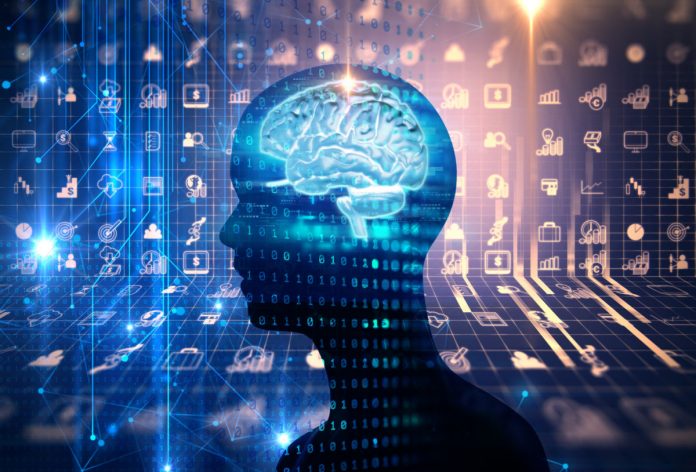This article has been written by Krati Agarwal pursuing the Diploma in Intellectual Property, Media, and Entertainment Laws from LawSikho.
Table of Contents
Introduction
For the first time in history, an Artificial Intelligence System has been recognized as an inventor of the innovative machine and granted a patent for it’s invention in South Africa. The invention here is a “food container based on fractal geometry,” which provides an interlocking system, more accessible for robots to grab. However, the most striking feature of this patent is its inventor. The inventor is DABUS (Device for Autonomous Bootstrapping of Unified Sentience), an AI created by Stephen Thaler. DABUS is a “creativity machine” that uses Machine Learning principles to learn and come up with its unique ideas. This patent grant has received several backlashes from around the world, especially from Intellectual Property experts calling it an invalid grant. It is important to note that the application for patent was filed with patent Offices around the World from the USA to the UK to Australia, where it was rejected except South Africa. South Africa has become the first country globally to recognize that an AI system is capable of holding rights, in this case, patent rights. Soon after, even Australia granted it patent in consequence of its Court ruling in favor of the applicant in Thaler v. Commissioner of Patents [2021 (FCA)879]. This article covers in detail; the invention and AI machine, the concept of patents in general, the legal implication of this step, and whether this is a step in the right direction or not.
Invention & AI
DABUS was created by Dr. Stephen Thaler, who is considered a pioneer in AI and the programming world. He has been given the title of patent owner for this invention, while DABUS is granted the title of inventor. The invention comprises a system in food containers that provides accessible grabbing capacity for robots. The AI machine itself has developed this innovative idea without the help of any human. At this juncture, let us understand how DABUS functions.
DABUS works on Machine Learning. This means that DABUS has an artificial neural network in which various algorithms are coded. This neural network then studies and identifies the patterns between the information given to it and comes up with its understanding of the concept. This is just like a human brain but in an artificial way. DABUS further learns new concepts based on new data and can comprehend any existing problem and provide solutions for it. Hence, DABUS came up with this unique patentable idea, making it easier for robots to grab foot containers and thus increasing their efficiency.
Ingredients to qualify as Patent
A patent is an intellectual property right granted to the owner of an invention to use and exploit it exclusively for a fixed period. This exclusive right is granted in exchange for making the information about the invention public. The system of patent law has been created to promote research and development. Without it, there would be no incentive for inventors and developers to come up with innovations. This invention was not granted a patent from many jurisdictions, including the USA, UK, and Australia, with reasons discussed below. Thus, it becomes crucial to have a look at the laws of patents of these nations.
There are similar criteria for making any invention eligible for patent around the World. These qualifications are:
- Novelty: It should be something new, original, and different.
- Non-obviousness or an inventive step: The invention shouldn’t be obvious to a person skilled in that industry area.
- Utility: There should be some usage of the invention; it should serve a purpose.
The present invention ticks all the boxes of novelty, non-obviousness, and utility. However, it still wasn’t granted patent in many countries. The reasons stated by them while rejecting its application were:
- Their national patent laws only recognize humans as inventors. This is because of the usage of pronouns “him” “her” in the legislative language. Since the inventor here is not human, they cannot grant it a patent.
- The idea behind granting a patent is based on the “mental faculty” or “mental conception” of a person. These are absent in an AI-based system. (Even though the artificial neural network is the same as mental conception)
- Granting a patent means giving a right. A machine cannot own any right, and hence the application was rejected.
(These are common reasons based on the existing patent laws around the world. Some can argue changes to be made to the rules based on the latest developments, but whether the changes are a good idea or not is discussed in the next segment.)
Nevertheless, South Africa granted it the patent. However, South Africa’s patent office has not yet released any statement citing reasons for such a grant. We can only anticipate reasons like South Africa wants to promote itself as a supporter of IP rights or wants to be ahead in technical discussions and surpass the EU and USA. This means South Africa is the only jurisdiction that recognizes that machines can own rights, are capable of holding patents, and have a mental capacity.
Is it a step towards future innovations?
To determine whether it is a right step or not, it is essential to analyze the role of patents. patents, as stated above, provide an exclusive right to the inventor or owner to exploit its invention for a specific period. This exclusive right is the incentive for inventors around the world to innovate and come up with various works based on deep research. This promotes a culture of productivity and innovation and is necessary for the development of humankind and society as a whole. By taking the exclusive right to exploit, the inventor shares the information with the public, which other innovators can work upon to develop more unique concepts and solutions to complex problems. This cycle is thus very essential. Today we are engulfed by technology. Not only has it made our jobs more accessible but also made us more productive and creative. Any invention created by AI should be recognized as it contributed to the growth of society.
Arguments in favor of AI being granted Patent
Artificial Intelligence is the product of human creation. AI replicates the human mind as it also works on a Neural Network, much like we humans function on a system of neurons. A human mind capable of the invention is rewarded for it by the patent laws. These laws use the term “mental conception” as a necessary element for recognizing any innovation. It is argued that “mental conception” is similar to “machine conception” because both require comprehension based on its information. Even a human mind is not born with information; it collects it over time. Similarly, machine learning takes inputs from its surroundings. Both of them then comprehend the data based on their perceptions. There is no role of humans at this phase in a machine. Hence, a machine deserves a patent.
Arguments against AI being granted Patent
Although it might seem right in the interest of society that AI should be granted patent rights, it is not as simple as saying it. It poses many practical legal questions.
To be granted a patent, the AI should be capable of holding rights. AI doesn’t have any legal personality, and hence it cannot own, transfer or assign rights. There have been debates around the world about granting legal personality to AI. Legal personality carries with itself certain rights, duties, and responsibilities. An AI is not able to exercise any of them. Similar debates arose at the time when a self-driving car killed a woman in the USA. Although eventually the case was settled out of court, this incident brought meaningful discussions on board. In such a scenario, can an AI machine be held responsible for this accident? Clearly no, then how can we talk about giving it a legal personality.
Possible solution
It’s clear that we need some recognition of AI-based inventions to promote growth in society. However, legal personality isn’t the way forward. A separate category of personhood needs to be created to achieve this goal. In 2017, The European Parliament passed a resolution considering the possibility of creating “electric persons”. They opined, “creating a specific legal status for robots in the long run, so that at least the most sophisticated autonomous robots could be established as having the status of electronic persons responsible for making good any damage they may cause, and possibly applying electronic personality to cases where robots make autonomous decisions or otherwise interact with third parties independently”. It is interesting to note that the Indian Parliamentary Standing Committee came up with a report to incorporate AI-based advancement into Intellectual Property Regime in India this year. They also suggested that a separate category of personality should be created to further the growth of AI system-based innovations.
Conclusion
An AI getting inventor status is a piece of big news. It challenges the settled principles of law and demands an amendment to be made in its favor. As discussed, a legal personality is not the way to go; instead, a separate personality can serve the purpose. This separate personality will have rights but not have responsibilities of its own. Jurisprudential concepts have to be dug into to come up with a perfect solution. Meanwhile, it can be argued that it is not necessary to grant inventorship/ownership to the AI system. Instead, the status can be granted to the owner of the AI system. This will increase innovation. How will a machine be motivated to innovate? Surely it can think like humans, but it doesn’t have the same aspirations as them. Nevertheless, if the legal systems grant these titles to AI systems, this will be the most exciting outcome of the technological revolution.
References
- https://spicyip.com/2021/08/parliamentary-standing-committees-recommendations-concerning-ai-and-ip-a-little-late-or-way-too-early.html.
- https://www.mondaq.com/advicecentre/content/1022/Patent-Law.
- https://www.managingip.com/article/b1sx9mh1m35rd9/dabus-south-africa-issues-first-ever-patent-with-ai-inventor.
- https://www.thehindu.com/sci-tech/technology/in-a-world-first-south-africa-grants-patent-to-an-artificial-intelligence-system/article35817497.ece.
Students of Lawsikho courses regularly produce writing assignments and work on practical exercises as a part of their coursework and develop themselves in real-life practical skills.
LawSikho has created a telegram group for exchanging legal knowledge, referrals, and various opportunities. You can click on this link and join:
 Serato DJ Crack 2025Serato DJ PRO Crack
Serato DJ Crack 2025Serato DJ PRO Crack










 Allow notifications
Allow notifications


